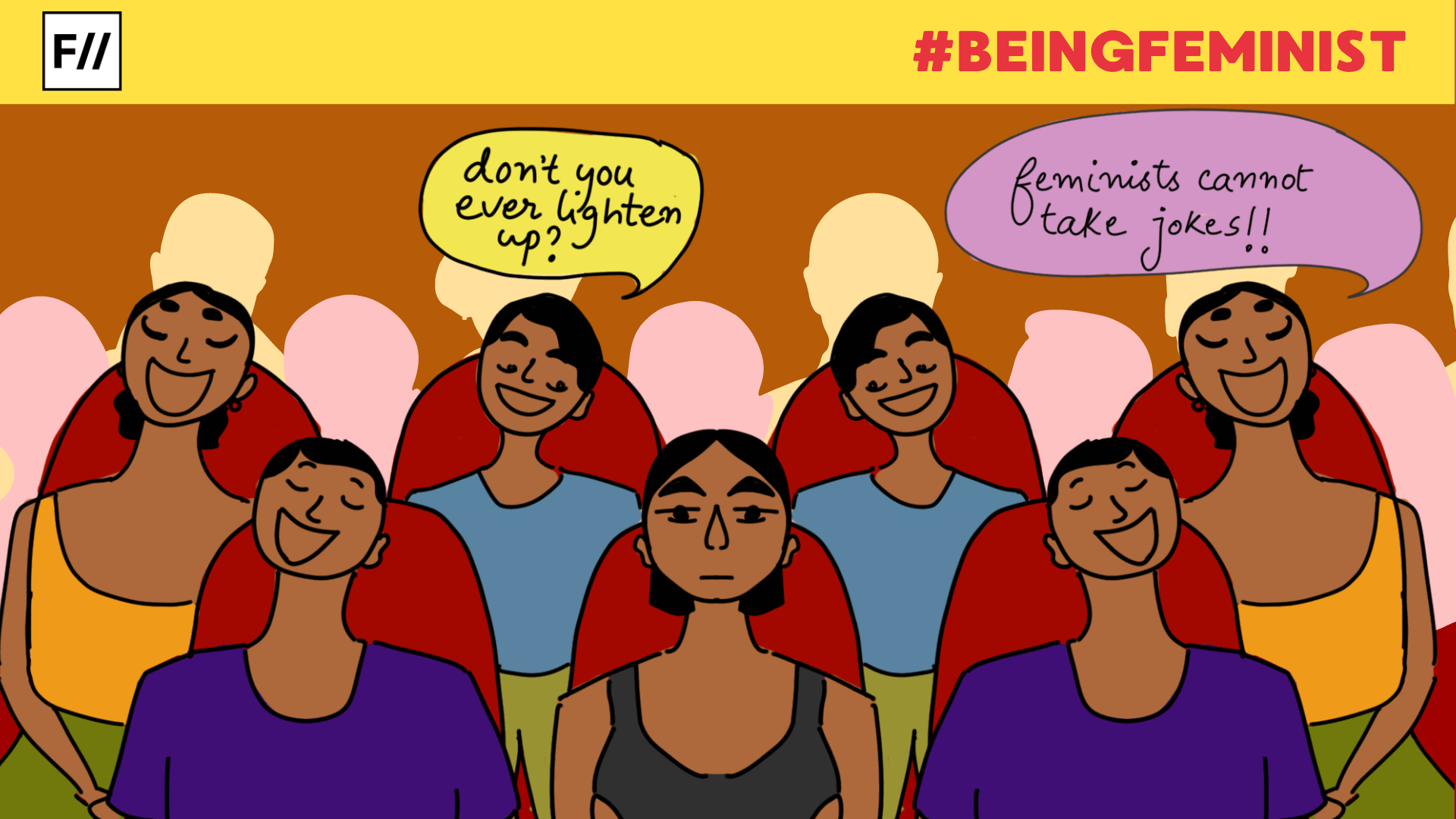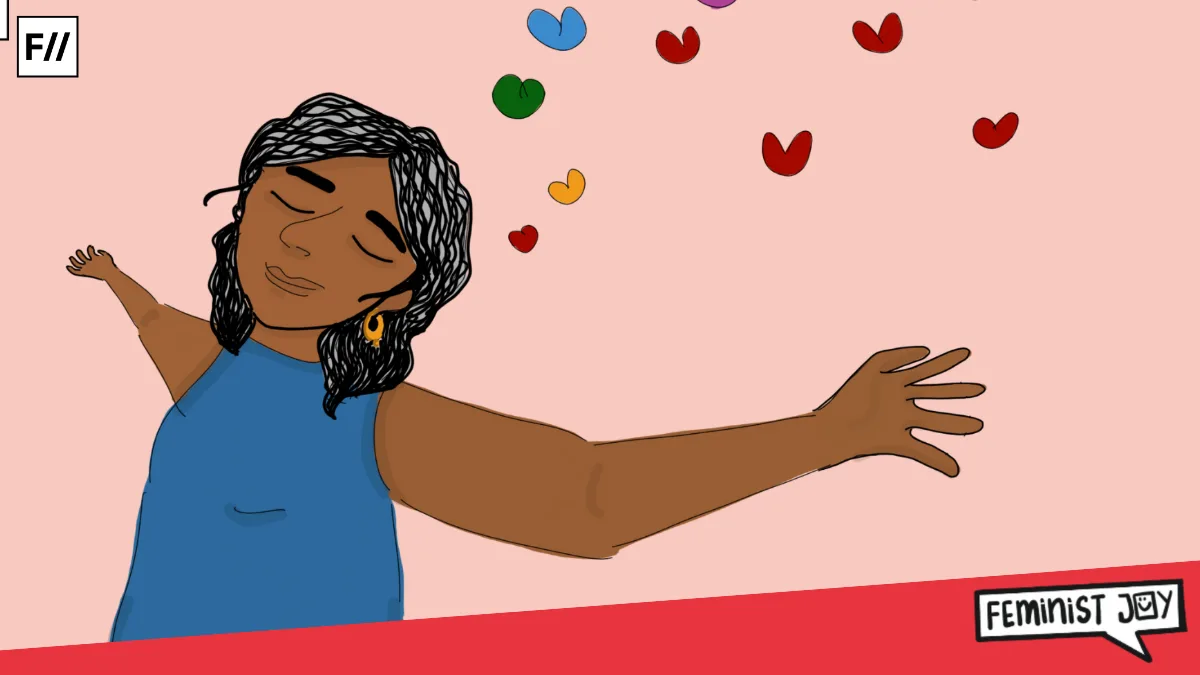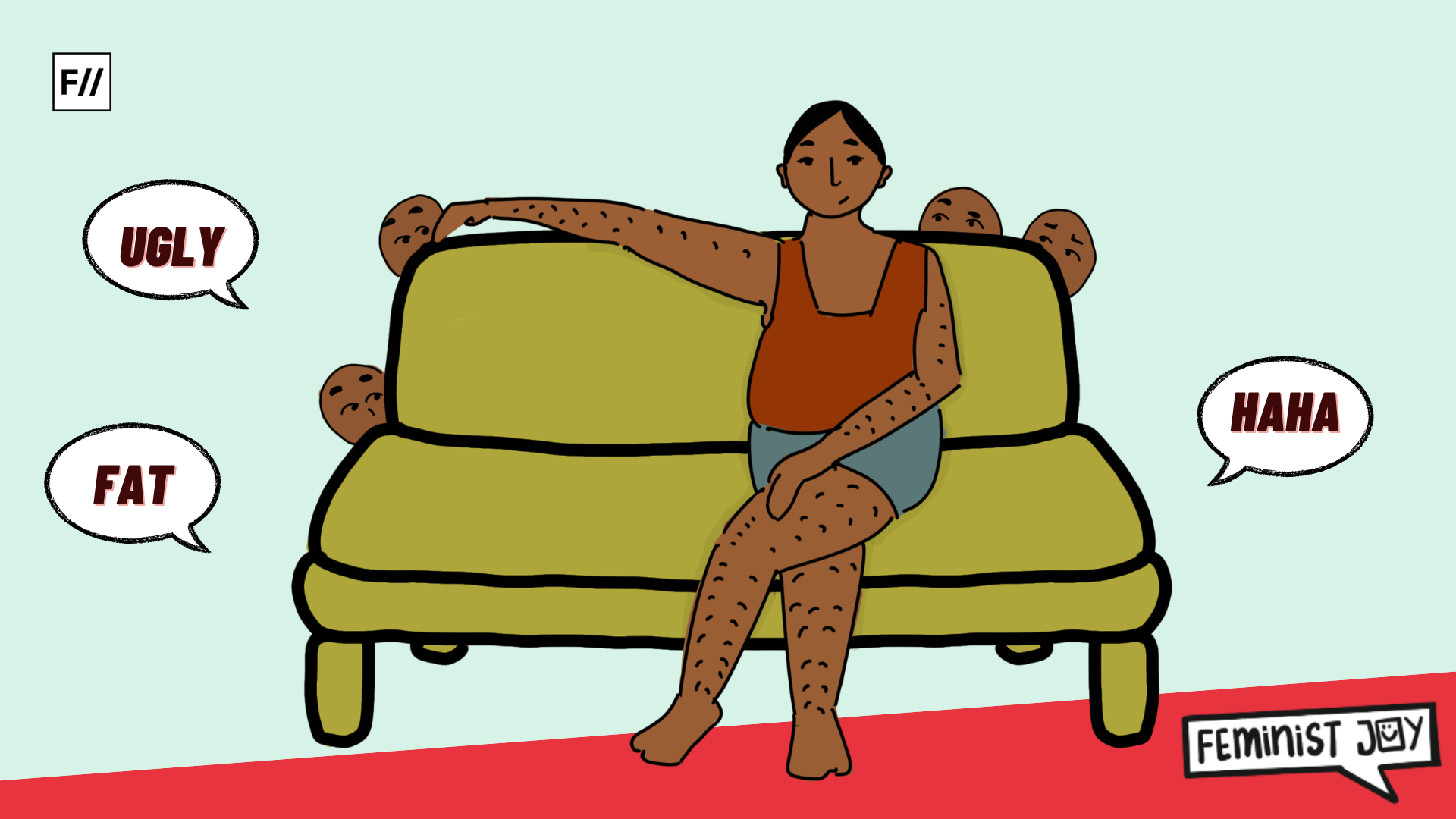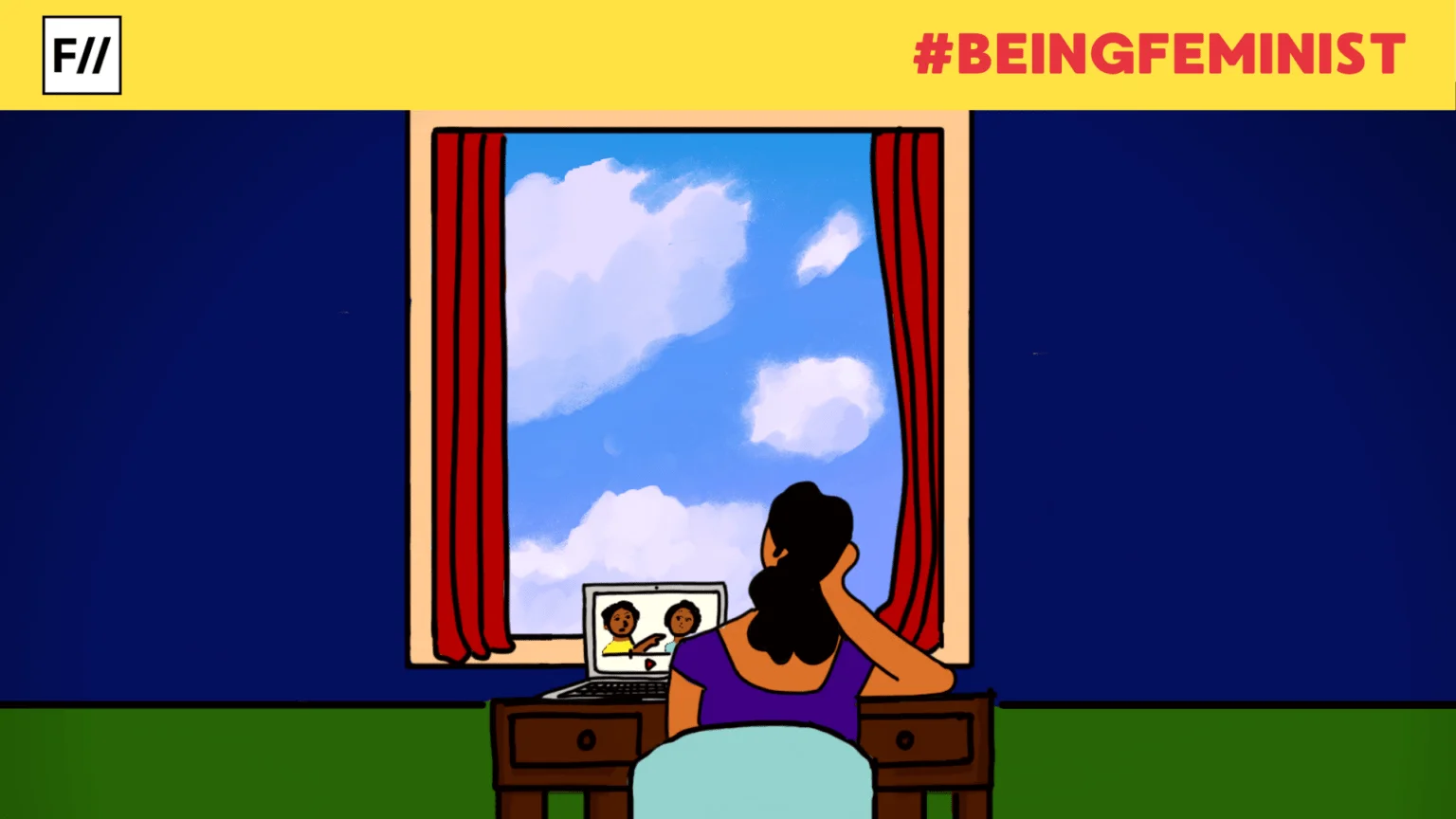Editorial Note: Being Feminist is a fortnightly column that features personal narratives documenting the emotions, vulnerabilities and innermost contradictions every feminist encounters while trying to push through various degrees of patriarchy in private, professional and public spaces.
One of the most significant formative memories from my childhood involves a joke, and a very good one if you were to ask an eight-year-old me. The old pendulum clock that sat in our drawing cum living cum bed cum dining room needed frequent winding. Everyone was ardently suckling on mango seeds (a common Bengali ritual during summer) when Ma realised the clock was stuck.
“Ebaba, when did the clock stop working?” I distinctly remember taking a rather dramatic pause before quipping in, “At exactly the time the clock shows”. I was disproportionately proud to have made everyone leave their now-white mango seeds to chuckle, a great compliment in a household that preferred coughing over artificially ripened mangoes to throwing away the mango skin. I decided I was funny.
21 years later, I do not know if I can be called funny on generally accepted terms. (I guess it is funny enough to be a feminist. Choosing to push back every day instead of shutting all your faculties and “just going with the flow” is pretty damned funny.) We grew up watching comedy shows at the dinner table and practicing not choking on morsels. Now, family and friends censor themselves around me. What changed?
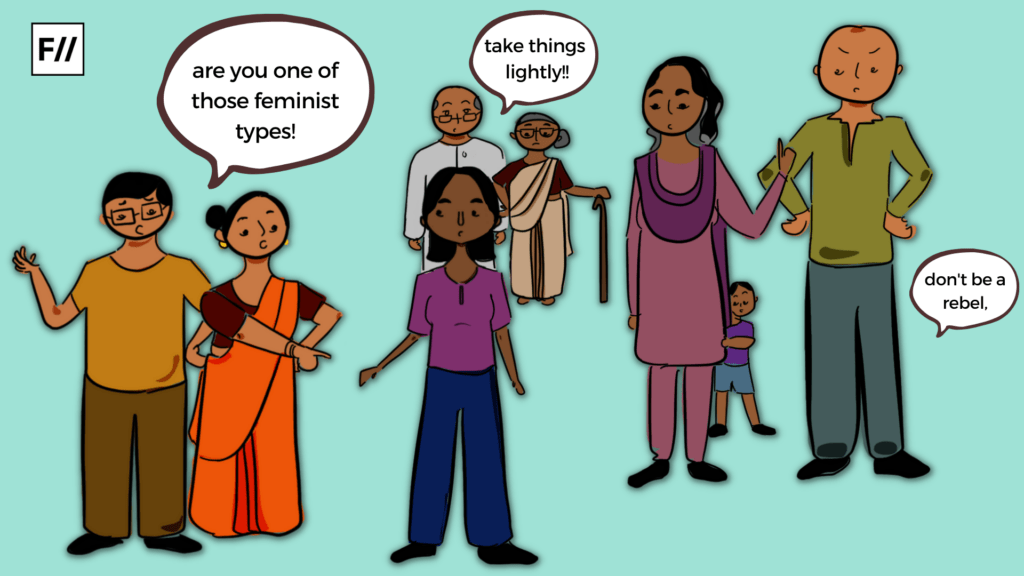
I was brought up by a mother who had booming laughter and was always reminded of it. Her biting wit, I later realised, was her way of asking for accountability from a family that mostly failed to pull their weight. My grandmother was the best mimic I have ever known, while my sister continues to be a clown. I grew up with funny women.
My father was the major male figure who loved sharing funny anecdotes from work and jokes his friends lent him. His jokes were reminiscent of the skits that played before the local news or the laughter challenge shows we religiously watched. A homegrown example: Wife says, “I have changed my mind”. The husband responds “Is it working now?”
Starting college, changing access with the advent of the internet, and the rise of fourth-wave feminism informed me with a deeper understanding of the reason why the world had started looking less funny by the minute. SMS one-liners started transforming into memes, comedy shows into youtube skits, but I couldn’t take off my feminist glasses for a peal of hearty, oblivious laughter. The writing started looking predictable, with easy punchlines saying men will be men or women are frivolous, materialistic, mysterious creatures making the world a difficult place to live, one joke at a time
A laugh track is a psychological trope to induce laughter. It might not leave you in stitches but don’t be surprised if you crack a smile at a morbidly boring scene. The funny women who brought me up, laughed at all kinds of jokes because that is how internalised sexism rolls. More often than not, the punchlines were misogynistic, homophobic, casteist, racist, ableist, or in other words, lazy. I chuckled at jokes I did not understand because not laughing would mean I was not intelligent enough to understand them or worse, lacked a sense of humour. So it became very noticeable when I stopped.
“Men are afraid that women will laugh at them. Women are afraid that men will kill them“, wrote Margaret Atwood. Before I questioned comedy, I learned to question the comic, and I think my journey continues to be on the same path. Charlie Chaplin was my first tryst with the tussle of being funny and feminist. I loved his work as a child, especially the way he moved his body.
But in high school, I came across an article talking about Chaplin’s casting couch, where he sexually harassed applicants. I realised I could not switch off the part of my brain that held this information to be able to sit down and watch his work through an innocent, funny lens anymore. It was political. His action behind the camera was still relevant to his performance. His somersaults for the heroine ceased to be funny and I felt angry that the unadulterated joy of watching it was taken away from me. I was not angry with myself but with the long-dead artist.
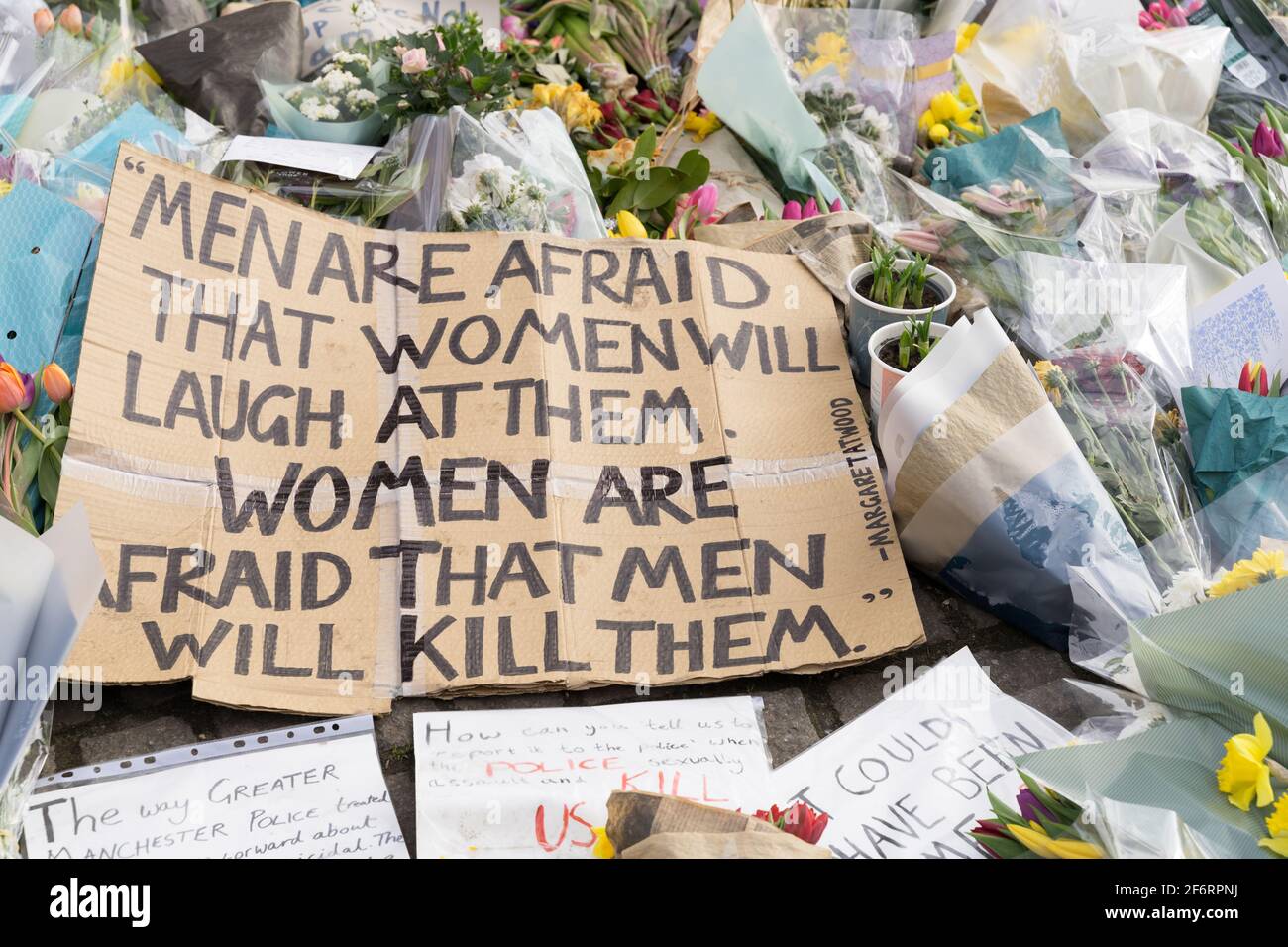
A few years later, Bill Cosby and Louis CK proved that those sexually aggressive, sexist sets were an extension of who they were. Cosby joked about drugging women, later substantiated with criminal evidence. We were laughing at a criminal Hansel-Gretteling their crime because they knew this humour was nothing out of the ordinary. That is how scary it looked to me, that is how scary it is. (If nervous laughter counts, I don’t think I ever stopped having a sense of humour.)
To have the power to interrogate the existing power dynamics, subvert belittling, interrupt erasing, or laughing at an oppressed community, is a responsibility, and for the lack of a better term, not a joke. “…just remember the golden rule of comedy, which is, if you’re in the minority, you do not matter“, said comedian and writer Hannah Gadsby.
Starting college, changing access with the advent of the internet, and the rise of fourth-wave feminism informed me with a deeper understanding of the reason why the world had started looking less funny by the minute. SMS one-liners started transforming into memes, comedy shows into youtube skits, but I couldn’t take off my feminist glasses for a peal of hearty, oblivious laughter.
The writing started looking predictable, with easy punchlines saying men will be men or women are frivolous, materialistic, mysterious creatures making the world a difficult place to live, one joke at a time.
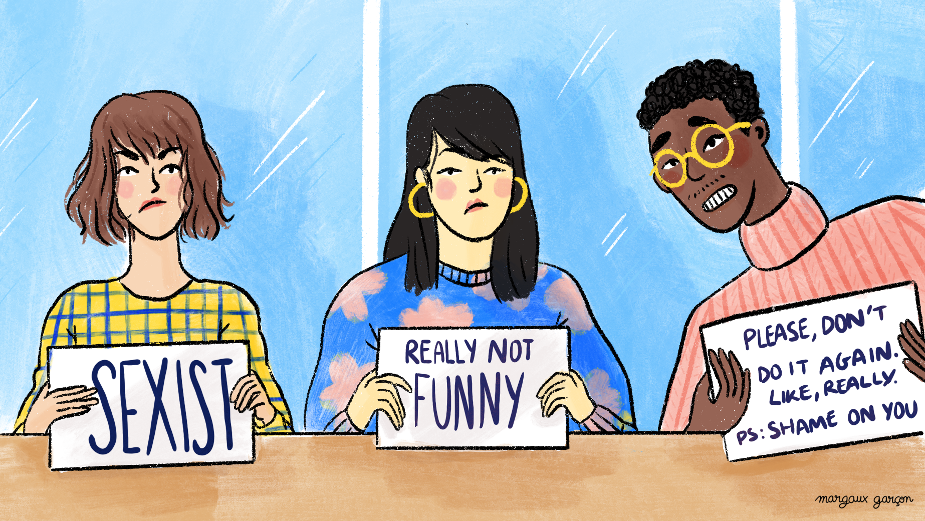
Homophobia and transphobia were entrenched in the fabric of popular humour. I started realising there was very little space for funny in the world of comedy in literature, media, or personal spaces. I also realised that being funny meant “oh you are not like other girls” in the heterosexual dating pool.
By the time I was in college, I was considered madly unfunny, and serious at home and in most commonplaces. Amongst peers, I was cynical at best, and a riot in my friend circle, which was more triangle than anything else. I was an absolute killjoy for most men I dated. Some years later, well into my professional life in the corporate world, I became a terrifying presence at the water cooler. A feminist without an off button. Some jokes really crack me up
I disliked the popular, violent comic rhetoric while also feeling frustrated with the sexist reception of my sense of humour. My signature puns and bad jokes soon took an acidic tone. At home, my parents could not reheat the classic casserole of sexist jokes for my weekend visits anymore. Friends were getting exhausted with me constantly pointing out why a certain joke did a disservice to a community. A funny slur became evidence of a casteist conscience wielded by the Brahminical society. A men-are-from-Mars-women-are-from-Venus joke became a patriarchal tool. I became a bane of the funny world’s existence.
Common dialogues my fellow feminists might have heard, “Can’t you take a joke” or “Lighten up!” or “Do not take life so seriously”, became regular comebacks. Repeating something makes it look like the truth: this was a feminist’s dilemma before it became a strategy to run a country. I started wondering was I really losing my sense of humour. I always loved language and how it could be moulded to mean so many things and the innate humour in that. Did being a feminist mean I could not be funny anymore?

Being a funny feminist
“It’s hard to be told to lighten up because if you lighten up any more, you’re going to float the fuck away,” writes Roxane Gay in her book Bad Feminist. I do not remember the exact moment it dawned on me that men wouldn’t be “funny” if women did not exist. It was either the first time I saw my trauma reflected in the drawing-room jokes or the second time I saw a man stiffen up at a joke made at his expense.
I grew to observe that this formula holds true at every intersection. By the time I was in college, I was considered madly unfunny, and serious at home and in most commonplaces. Amongst peers, I was cynical at best, and a riot in my friend circle, which was more triangle than anything else. I was an absolute killjoy for most men I dated. Some years later, well into my professional life in the corporate world, I became a terrifying presence at the water cooler. A feminist without an off button. Some jokes really crack me up.
A significant way into my adulthood, a comic named Hannah Gadsby made me feel understood- that I was not going mad, that my hormones hadn’t eroded my funny bone and that it is never “just a joke”. That indeed, sarcasm is a natural recourse from wit when mainstream humour thrives on punching down.
I remember guffawing for a whole minute when Gadsby said “y’all” was the most inclusive second-person pronoun and exclaimed, “Thank you, the South. What an ally!” I wondered, is it so difficult to punch up and get a laugh out of it? It is not, really. Hannah’s acerbic humour that felt like a breeze was uncomfortable for many of my cishet male acquaintances.
The more politically safe players called her stand-up specials performance pieces, theatrical monologues and other exalted terms to avoid saying “those jokes were not funny, shut up!”. Men are sensitive to women critiquing male Renaissance artists painting a naked woman’s body.
It is not easy though. It is not easy being funny and a feminist. I learned to be kind to myself for laughing at something that I did not realise was violent, to be kinder to myself when I have cracked a joke that hurt someone based on their identity and experience. Laughing with someone is a lot more fun than laughing at someone. The best way to make the world a little bit more tolerable is to stick to your lane
Being a feminist meant I thickened my skin to the rhetoric of being an unfunny woman while not playing along with the sexist game. Instead, I found my courtroom of jesters. The likes of Arielle Isaac Norman, Ali Wong, Daniel Sloss, and Matteo Lane have made me tear up for the right reasons.
Both Arielle Norman and Matteo Lane were late finds on Instagram. Hannah Gadsby continues to be the comedian I have felt the closest to. Writers like Phoebe Waller-Bridge (‘Fleabag’) and Michaela Coel (‘Chewing Gum’) have created bodies of work that are relatable, politically informed, and most importantly, funny as hell.
I think they found the right answers to the question of being funny and feminist. Do I not enjoy cishet male comics then? Am I sexist? I could have been, I think (men make it look awfully easy) if feminism hadn’t tripped me. I love Daniel Sloss and the raw honesty with which he looks at his existence, which includes his masculinity. Cishet male comedy doesn’t have to be tragically crass. But being sensitive, empathetic, and being funny at the same time would mean actual work, and who wants to do that?

It is not easy though. It is not easy being funny and a feminist. I learned to be kind to myself for laughing at something that I did not realise was violent, to be kinder to myself when I have cracked a joke that hurt someone based on their identity and experience. Laughing with someone is a lot more fun than laughing at someone. The best way to make the world a little bit more tolerable is to stick to your lane.
If we look at our own lives and experiences with humility and not humiliation we will find loads of things funny – some downright hilarious, some that will achieve the rare spectacle of laughter through tears. It took years for me to take a step back and not defend the humour that harmed someone.
Feminism or not, it is important to not look at humour as an absolute artifact. Jokes do not live in a vacuum, they have context and they have the power to empower and to hurt in equal measure. The decision lies in choosing a side of the scale and the answer is always – punch up! For the top of the chain cishet upper-class savarna boys out there, just punch yourself. That should suffice.
Also read: ‘I Feel Like A Hypocrite When I Cringe At My Hairy Arms’: On Removing Body Hair While Being Feminist
Featured Illustration: Ritika Banerjee for Feminism In India
About the author(s)
She/they is an editor and illustrator from the suburbs of Bengal. A student of literature and cinema, Sohini primarily looks at the world through the political lens of gender. They uprooted herself from their hometown to work for a livelihood, but has always returned to her roots for their most honest and intimate expressions. She finds it difficult to locate themself in the heteronormative matrix and self-admittedly continues to hang in limbo
